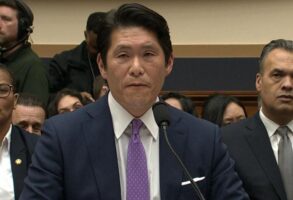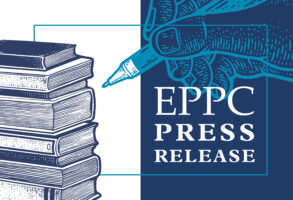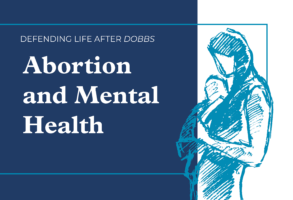EPPC is committed both to ensuring the equal protection of unborn children in the law and to providing concrete support to families by advancing a pro-life, pro-family agenda that takes our duties in justice to the unborn and to families seriously.
Recognizing the duties of care owed by parents to their dependent children, and the rights those duties engender, we seek to order society toward the full flourishing of human beings by properly protecting both. A full account of reproductive justice must embrace the inherent dignity and value of each human being by giving pregnant women and caregiving families the societal support they deserve and require. It must also ask of expectant mothers that they offer their developing unborn children due care, and of fathers that they take up their shared duties of care toward both mother and child. And it must prevent abortionists from performing acts of lethal violence to vulnerable and dependent human beings.
EPPC’s Life and Family Initiative brings together the longstanding pro-life efforts of many EPPC scholars—including Mary FioRito, Erika Bachiochi, Patrick T. Brown, and Alexandra DeSanctis—and coordinates with our existing programs on HHS Accountability, Bioethics and American Democracy, The Constitution, the Courts, and the Culture, Catholic Studies, and Evangelicals in Civic Life to create an integrated, holistic response addressing both the necessary protections for unborn children and the necessary support for pregnant mothers and their families.
The Life and Family Initiative works nationwide to advance pro-life policies that protect unborn children by restricting abortion at the state and federal levels, via legislation, regulation, and litigation. We continue to advance cultural remedies and propose robust public policies that support families and offer necessary aid to women facing unexpected pregnancies. The Initiative builds on the heroic and critical work that maternity homes, pregnancy resource centers, and countless volunteers have carried out for more than fifty years. Strong families and communities are the essential building-block of a healthy society, and economic policy must keep that point front and center.
Building an authentic culture of life will require an energetic agenda to support mothers and children, to more fully engage fathers, and to call upon society at large to promote justice and the common good.
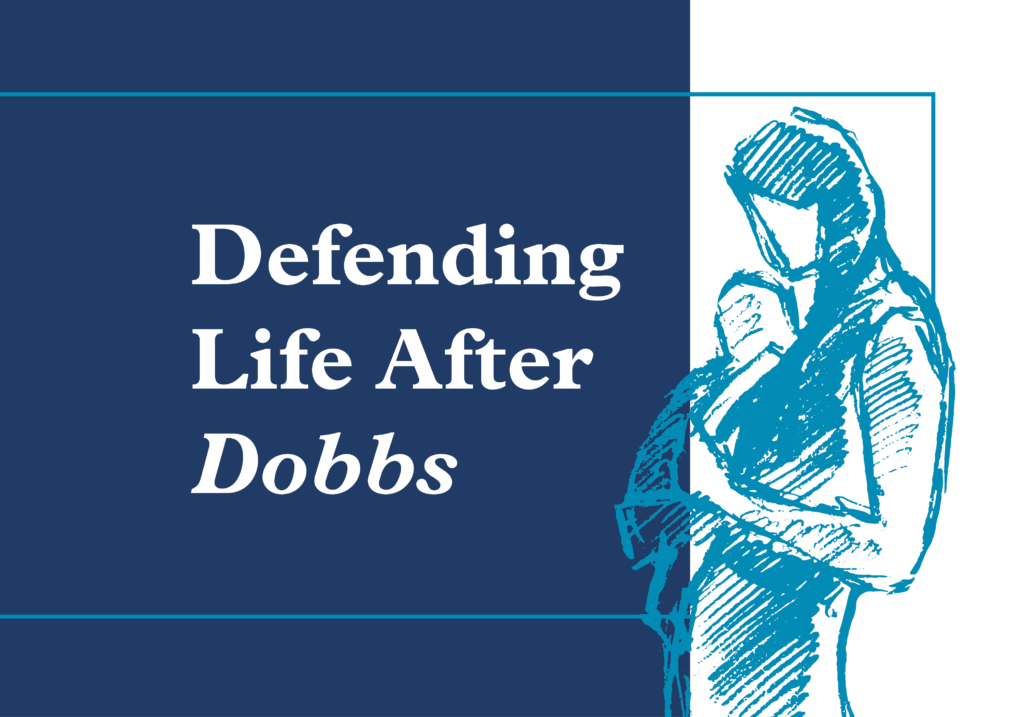
Defending Life After Dobbs
A team of scholars at EPPC has prepared this series of papers to equip lawmakers, staffers, lawyers, and scholars to defend unborn life in this new landscape. Based on the best available scholarship, the papers in this series are deliberately brief distillations of complex issues, accessible to non-specialists who may lack the time or expertise to wade through lengthy law review articles or philosophical papers in the scholarly literature. Each article deals with a different issue or argument now in play in the state courts and legislatures and includes a brief bibliography for further reading.
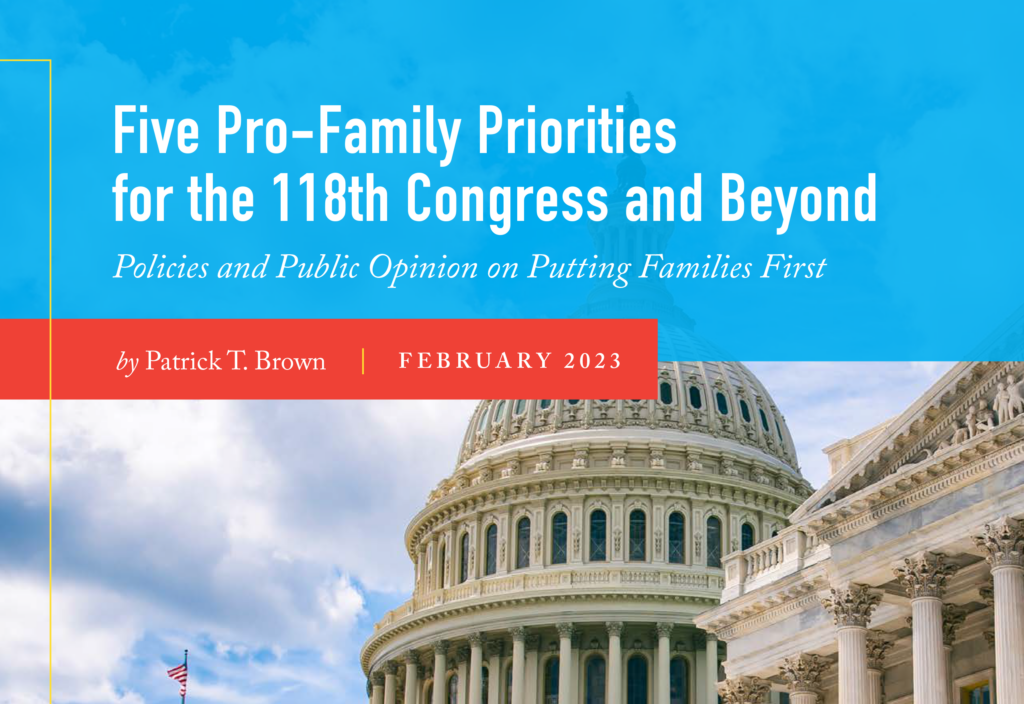
Five Pro-Family Priorities for the 118th Congress and Beyond
Policies and Public Opinion on Putting Families First
The family is the primary social institution oriented towards the bearing and rearing of children. An agenda to strengthen that institution should protect families from the economic and cultural forces that can undermine them. This report, a collaboration between the Institute for Family Studies and the Ethics and Public Policy Center, offers five policy ideas for an authentically pro-family Congress to champion.
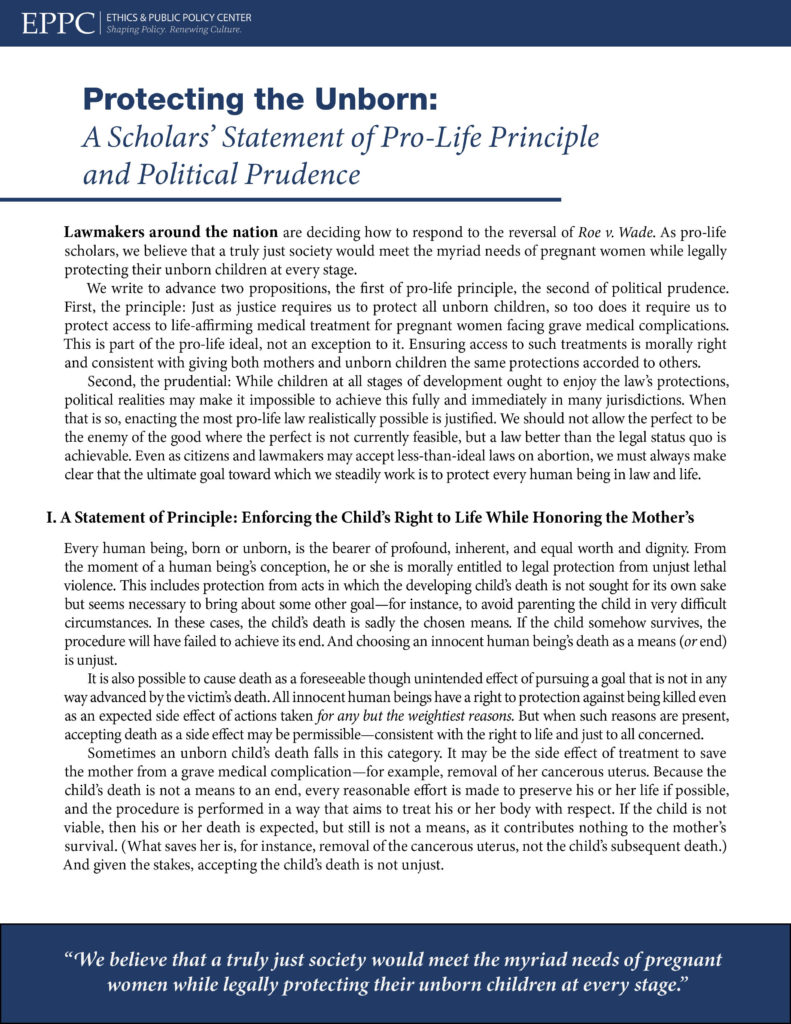
Protecting the Unborn: A Scholars’ Statement of Pro-Life Principle and Political Prudence
“Protecting the Unborn: A Scholars’ Statement of Pro-Life Principle and Political Prudence,” signed by EPPC’s Ryan T. Anderson, Erika Bachiochi, Alexandra DeSanctis, Aaron Kheriaty, Carl R. Trueman, Ed Whelan, and George Weigel with a coalition of leading intellectuals, articulates an ethically sound foundation for pro-life efforts and offers guidance for political leaders in prudent decision-making in the post-Roe political landscape.
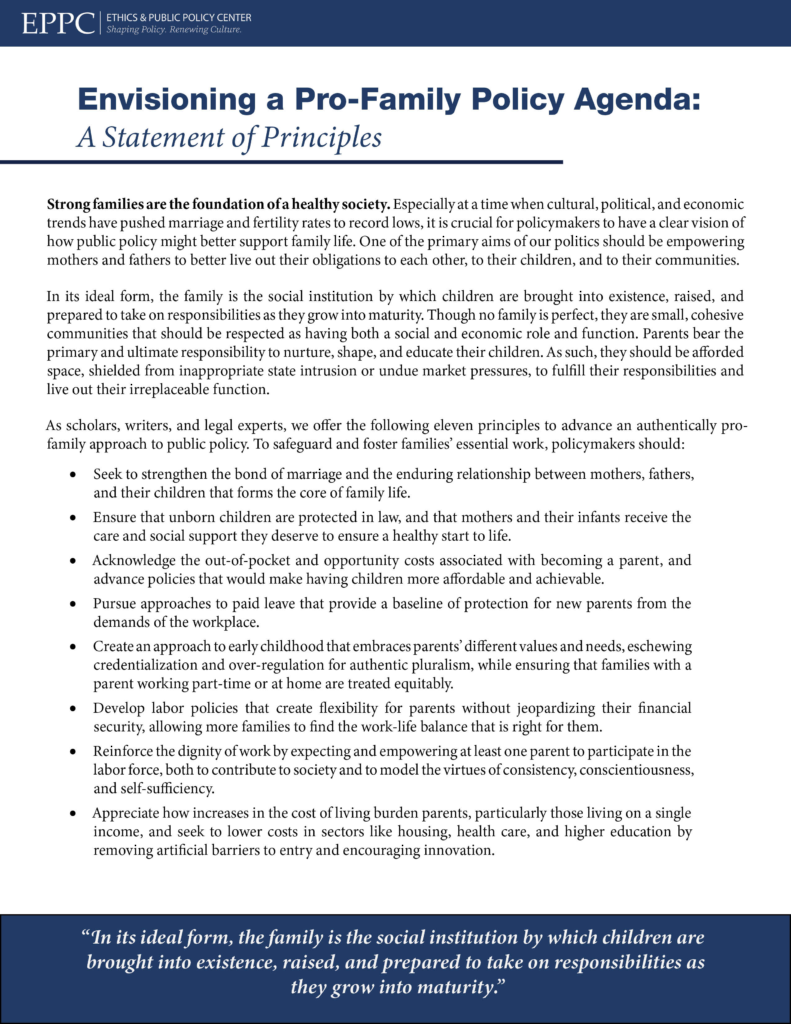
Envisioning a Pro-Family Policy Agenda: A Statement of Principles
“Envisioning a Pro-Family Policy Agenda: A Statement of Principles” was signed by EPPC’s Ryan T. Anderson, Erika Bachiochi, and Patrick T. Brown, as well as other leading intellectuals. The document suggests eleven tenets that should guide a pro-life, pro-family approach to policymaking.
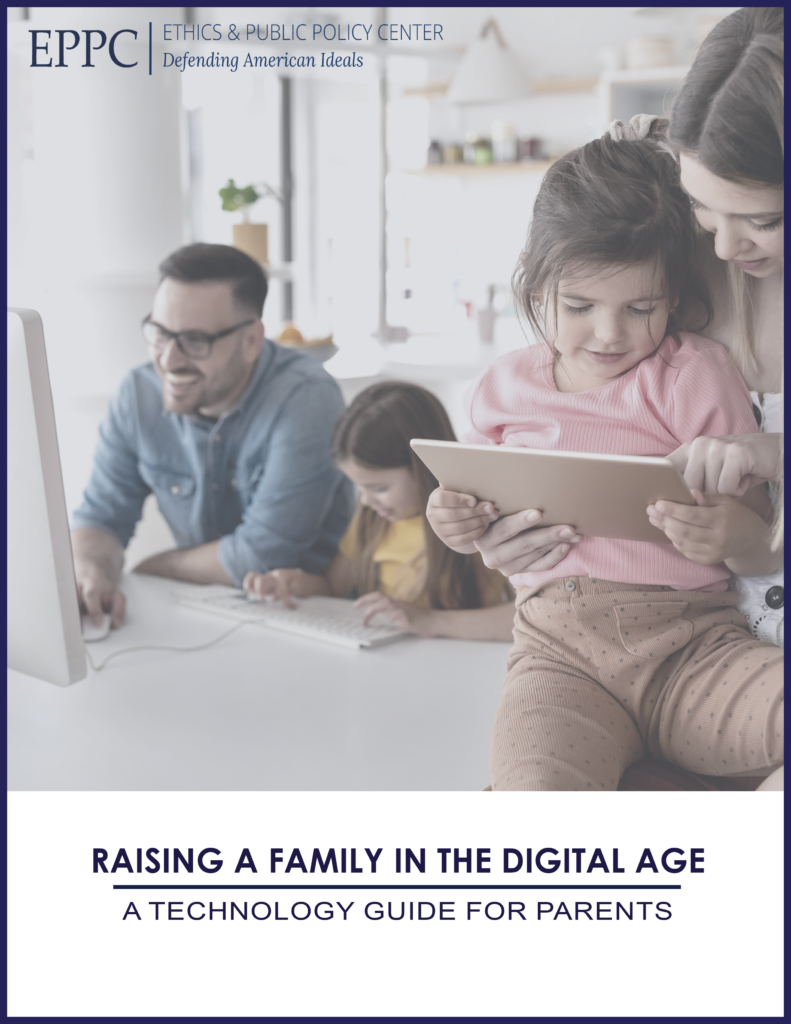
Raising a Family in the Digital Age
Raising a Family in the Digital Age: A Technology Guide for Parents, by Clare Morell, Patrick Brown, Noelle Mering, and Mary Hasson, is a 20-page resource designed to help educate parents about the harms and dangers of today’s technologies and equip them with practical tools to protect their children.
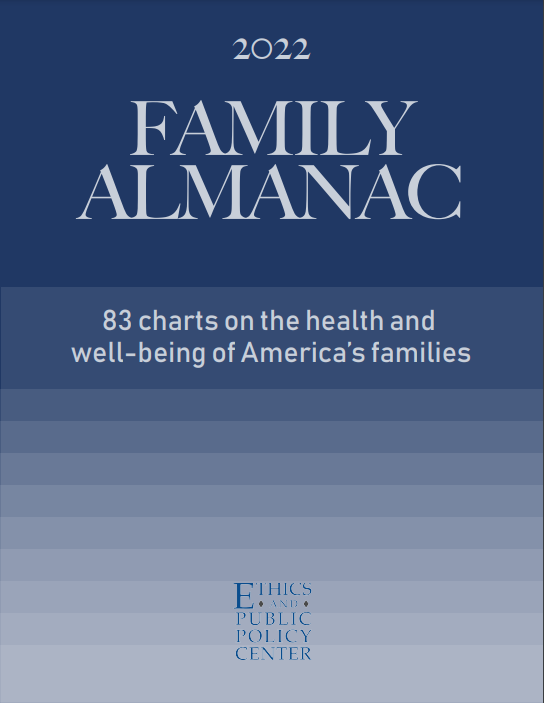
EPPC’s 2022 Family Almanac
The 2022 Family Almanac, compiled by Patrick Brown, contains a wealth of data about the state of the American family, comprehensively assessing what families look like, why they matter, and where their biggest pain points are. This resource proves a vital tool for readers and policymakers in understanding the challenge and opportunities for conservative family policy.
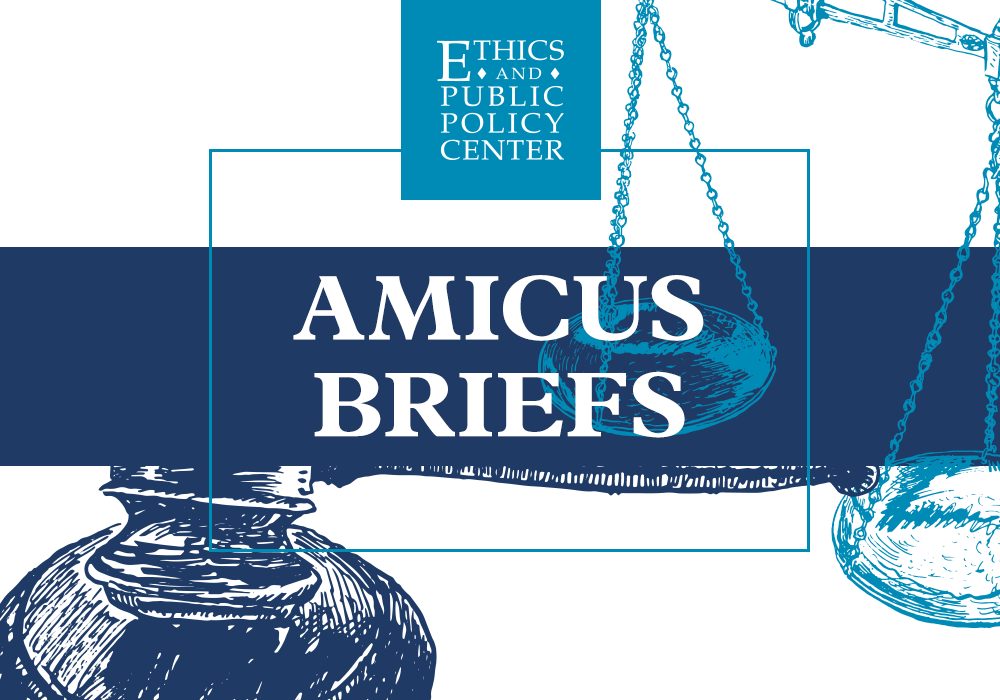
Amicus Briefs
EPPC and our scholars regularly file amicus briefs in key cases to promote a true and full account of human nature and human flourishing in the context of American constitutional law. Compiled on this page are some of our amicus briefs in cases addressing the right to life, marriage, gender ideology, religious freedom, free speech, and the rule of law.


